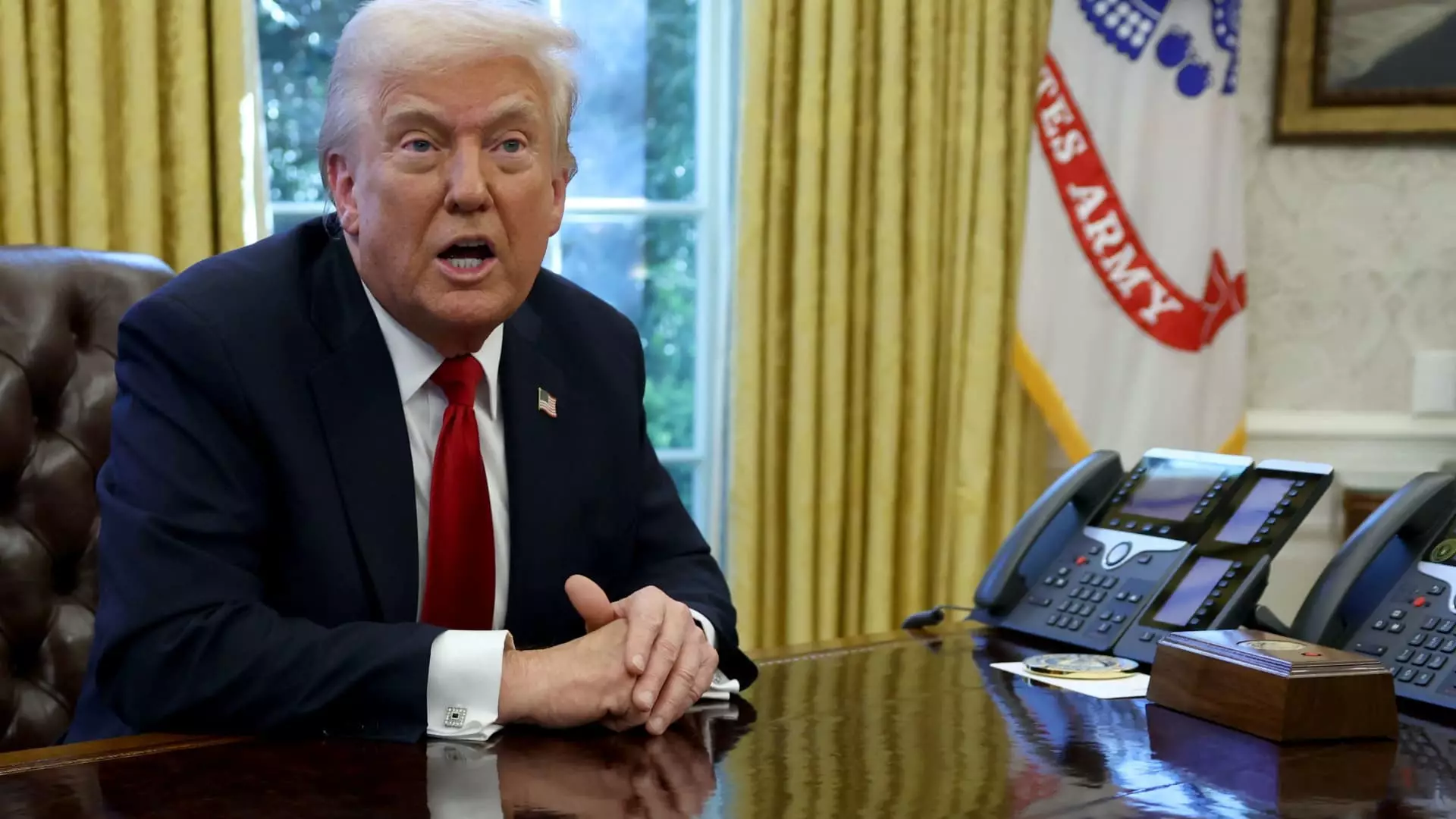In an unexpected move, President Donald Trump announced the imposition of 25% tariffs on all cars not manufactured in the United States, igniting a whirlwind of discussion about the potential effects on the automotive market. This decision appears to be rooted not just in economic policy but also in a personal relationship he shares with Elon Musk, the CEO of Tesla. Musk’s role as a senior advisor to the Trump administration, coupled with his fruitful financial contributions to Trump’s campaign, raises questions about the underlying motivations and implications of this tariff.
Trump’s comments suggest a strategic maneuver not only to bolster domestic manufacturing but also to reinforce his political alliances, particularly with businesses like Tesla that symbolize cutting-edge innovation. The dichotomy between economic advantage and personal loyalty in policy-making brings an added layer of complexity to the already intricate dynamics of the U.S. automotive industry.
Elon Musk: The Double-Edged Sword of Influence
Elon Musk stands as a figurehead in the modern automotive revolution, bringing unprecedented attention to electric vehicles. His influence, however, is simultaneously a boon and a potential risk for Tesla, particularly in the context of Trump’s tariffs. Musk’s previous contributions—totaling an impressive $290 million—position him as more than just an industry leader; he is a strategic partner in the eyes of the Trump administration. Yet, this relationship is fraught with tension, especially given Musk’s extensive commitments to Tesla and SpaceX.
It’s ironic that while Musk continues to lead initiatives aimed at optimizing government efficiency and reducing waste—via the Department of Government Efficiency (DOGE)—his own company could face significant hurdles from the tariffs, which are ostensibly designed to support American manufacturing. Yet the reality is that Tesla, despite its indelible link to the U.S. market, still relies heavily on global supply chains to source key components for its vehicles. This reality complicates the narrative of pure domestic advantage.
The Tariff’s Ripple Effects on Industry Giants
Trump’s proclamation that the tariffs could be “net neutral or…good” for companies like Tesla indicates a hopeful yet uncertain prediction about the future of electric vehicle manufacturing. While it is true that companies with domestic plants would benefit from reduced foreign competition, the intricacies of auto manufacturing suggest otherwise. Tesla’s recent plea to the U.S. Trade Representative highlights an essential truth: despite its strides in localization, Tesla and other automakers struggle to source specific parts entirely within the U.S.
The impact extends beyond just Tesla; traditional automakers such as General Motors and Ford, as well as newer entrants like Rivian, are poised to feel the adverse effects of sudden tariff increases. A critical look at these tariffs reveals potential for both disruption and opportunity, with the market standing on a precarious ledge, ready to either evolve into a more robust domestic industry or descend into operational chaos due to escalating costs and supply chain bottlenecks.
The Competitive Landscape of Electric Vehicles
Adding further to the tension is the rapidly changing landscape of electric vehicles, where competition is more intense than ever. With numerous manufacturers globally ramping up electric offerings, the tariffs may inadvertently close the door on healthy competition that could drive innovation and consumer choice. Tesla finds itself in a unique position: while it enjoys substantial market share, other competitors like China’s BYD, despite being excluded from the U.S. market, are making significant strides internationally, unencumbered by tariffs.
The stark reality is that Tesla could find itself primarily on the defensive front, battling not only for consumer loyalty amidst new challengers but also navigating the choppy waters of trade policy. If domestic tariffs push production costs higher, consumers may shun electric vehicles in general, or gravitate towards cheaper, foreign models that remain outside the tariff implications.
A Fickle Future for Tesla and Tariffs
It’s essential to unpack the broader implications of this tariff decision; the automotive industry is not just about immediate sales figures or stock performance but long-term viability and innovation. As analysts watch closely to see how these tariffs play out, one thing is evident: the future remains uncertain for Tesla and its electric vehicle brethren. Whether these tariffs will serve as a catalyst to boost American manufacturing or simply complicate an already complex global market remains to be seen, underscoring the precarious balance between policy, innovation, and consumer choice in a rapidly evolving automotive ecosystem.


Leave a Reply
You must be logged in to post a comment.